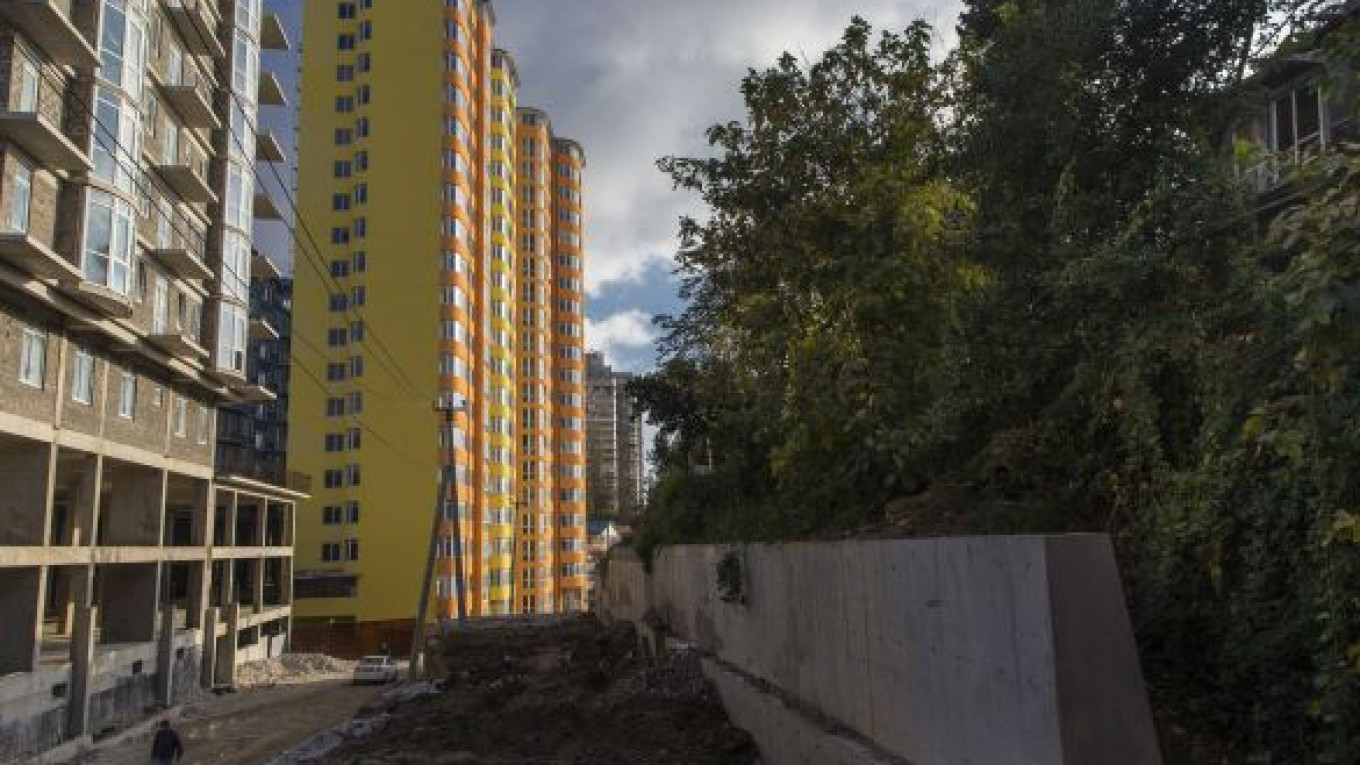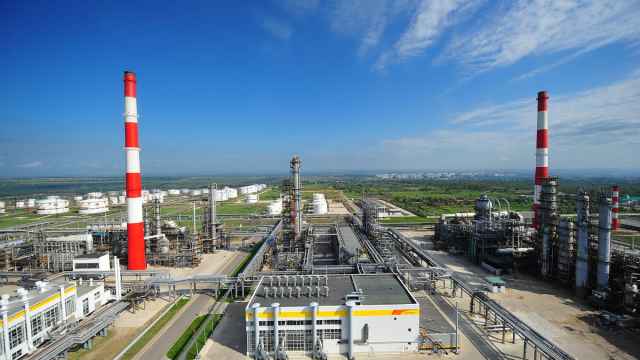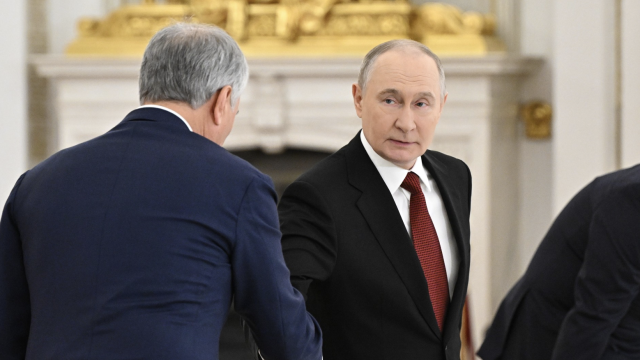SOCHI — Anti-terrorism drills conducted by the Federal Security Service in Sochi this month in anticipation of the upcoming Winter Olympics have used some of the most vociferous opponents of the Games as practice targets and caused severe inconveniences to guests and visitors.
Dmitry Shevchenko, deputy head of the North Caucasus Environmental Watch, an organization that published some of the most detailed and biting criticism of the organization of the Olympics, was detained Nov. 9 at Krasnodar airport upon his arrival from St. Petersburg.
Shevchenko had to go through a four-hour interrogation on suspicion that he was a member of a subversive terrorist group, deployed in the Krasnodar region to sabotage the Olympics.
Warning notices were posted near public buildings in Sochi, including police precincts, advising residents to beware of "terrorist groups of up to 48 individuals" who are likely to be "23 to 35 year old Caucasian or Slavic-looking men or women," who can present themselves as "journalists, construction workers, or members of political and civil society organizations."
The extremely detailed notices said that the groups will be imposters and specified in particular that their members can wear military-style outfit mountain shoes and Casio-Protrek watches, among other features.
Two pictures of young Slavic-looking men were provided at the end of the notice. The men had distinctively big sunglasses and moustaches.
Two FSB operatives in black leather coats told Shevchenko at the airport that he was being detained due to his apparent similarity to the description provided. The operatives continuously received instructions by phone on what steps to take.
After several other activists came to the airport to support him, Shevchenko was released.
Instructions on how a terrorist can be recognized were also distributed among Sochi residents, who were advised to be particularly suspicious of those "openly interested in where stores that sell ammonium nitrate" are located.
A suspected terrorist can also boast out load that he has "assembled a bomb" or might be seen carrying a bag "with wires stuck out of it," according to the warning.
Military helicopters were visible in Sochi airport, as well as naval cruisers in the Black Sea on Wednesday, pointing to tightening security in the region.
Anti-terrorist drills have paralyzed Sochi and the surrounding region with checkpoints on roads and heavy security measures at schools. Huge swaths of parks and mountainous areas were closed to tourists.
Activists of the group Environmental Watch have identified specific construction projects in Sochi and areas adjacent to it as being especially ecologically harmful. According to the organization, the Games have destroyed the Imeretinskaya valley, where most of the sports venues are being built, as well as the Sochi National Park, a part of the Western Caucasus World Heritage Site.
The activists also reported on a road, built in a mountainous natural preserve, and purportedly leading to the "private palace" of President Vladimir Putin.
This kind of activism has earned the organization's members intense scrutiny from the authorities.
According to the Environmental Watch's head Andrei Rudomakha, his phone is tapped and the FSB is constantly watching where he is and what he is doing.
On Oct. 31, Rudomakha was detained in Sochi, then set free after agreeing not to leave town, as part of a slander case opened against him in Dec. 2012.
"What they want to do is make me devote all my time to defend against all these fake cases, instead of fighting the government's lawlessness that has merged with big construction companies in Sochi in an ecstatic union," said Rudomakha.
Vladimir Kimaev, a member of the Environmental Watch's council, wound up in a traffic accident Oct. 24, under what he considers suspicious circumstances, with his motorcycle's brakes suddenly not working. Other environmental activists have also had what they described as "strange" traffic accidents.
"They are harassing us before the Games in order to preempt our activism before and during the Olympics," said Kimaev in a phone interview.
Rudomakha said that the fact that the wanted notice for alleged terrorists listed journalists and civii society members among the list of potential "covers" was very revealing.
Contact the author at [email protected]
A Message from The Moscow Times:
Dear readers,
We are facing unprecedented challenges. Russia's Prosecutor General's Office has designated The Moscow Times as an "undesirable" organization, criminalizing our work and putting our staff at risk of prosecution. This follows our earlier unjust labeling as a "foreign agent."
These actions are direct attempts to silence independent journalism in Russia. The authorities claim our work "discredits the decisions of the Russian leadership." We see things differently: we strive to provide accurate, unbiased reporting on Russia.
We, the journalists of The Moscow Times, refuse to be silenced. But to continue our work, we need your help.
Your support, no matter how small, makes a world of difference. If you can, please support us monthly starting from just $2. It's quick to set up, and every contribution makes a significant impact.
By supporting The Moscow Times, you're defending open, independent journalism in the face of repression. Thank you for standing with us.
Remind me later.






